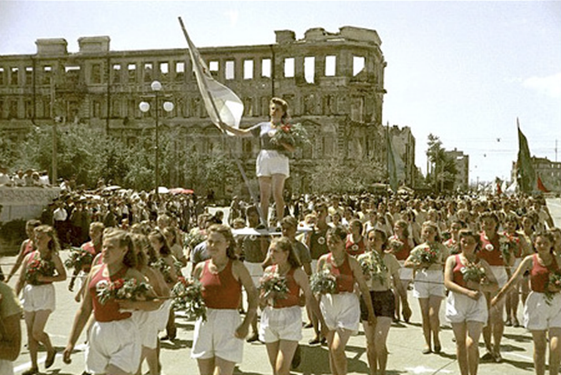
Stalingrad 1945. Celebration of Victory. Parade of athletes.
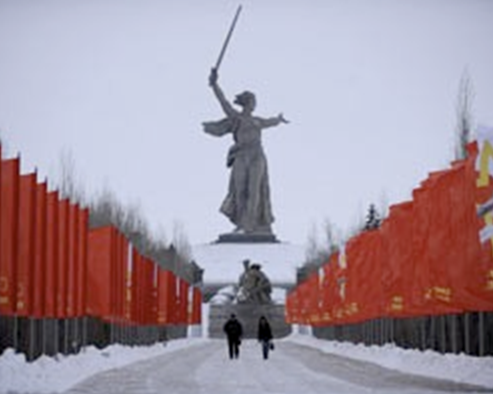
Volgograde (Stalingrade) today.
February 2, 2013 is the 70th Anniversary of the end of the Battle of Stalingrad. This was over the 5 months major and decisive battle of World War II in which Nazi Germany and its allies fought the Soviet Union for control of the city of Stalingrad (now Volgograd). It is among the bloodiest battles in history, with the estimates of combined casualties amounting to nearly two million. The heavy losses of the German army made it a turning point in the whole war. After the Battle of Stalingrad, German forces never recovered.
The jubilee of the battle became a focus point in the growing conflict between supporters of “destalinization” of Russia and neo–Stalinists seeking return of Stalin’s time traditions and praising the bloody dictator as “an effective manager”, who made the entire world in fear of Russia.
Last week the City Duma of Volgograd voted to re–name the city back to Stalingrad for all days of celebrations commemorating World War II.
The title “Stalingrad, the Hero City” was used during the official February 2 ceremonies of celebrating Victory in the Battle of Stalingrad; it will be used on May 9 – Victory Day; June 22 – the day of the German attack on the USSR; August 23- Day of Remembrance of the massive bombing of Stalingrad by German aviation; September 2 – the anniversary of the end of the World War II; and November 19 – the day of beginning of the Battle of Stalingrad. The name “Stalingrad” will be used in all the speeches of the deputies and all officials during these dates.
One of the most conspicuous pro–Stalinist campaigns of last years is the so-called “Stalinobuses” campaign.
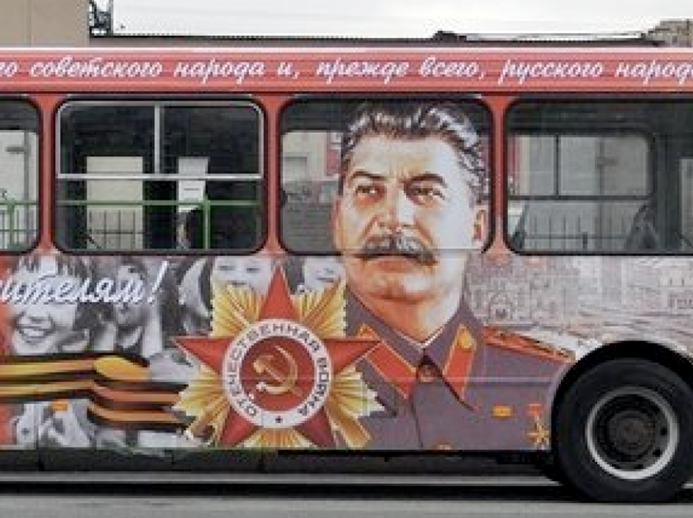
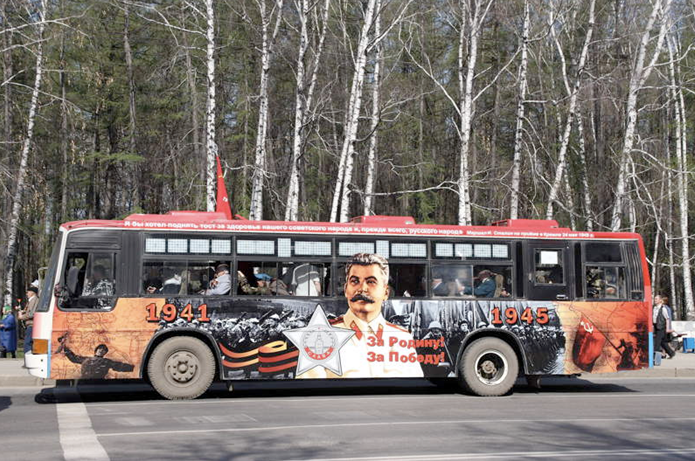
The first bus with a portrait of Stalin appeared in the streets of St. Petersburg in the spring of 2010. Anti–Stalin activists plastered the portrait with black ink, but the Stalinobus was washed and returned to its route. In May 2011, the image of Stalin appeared on the shuttles in Omsk and on posters in the St. Petersburg subway. In November, for the 70th anniversary of the military parade of 1941, buses and taxis decorated with Stalin’s image were operating in Irkutsk, Tyumen, Chita, Sevastopol, Kaliningrad. In May 2012 stalinobuses were operating in about 30 Russian cities.
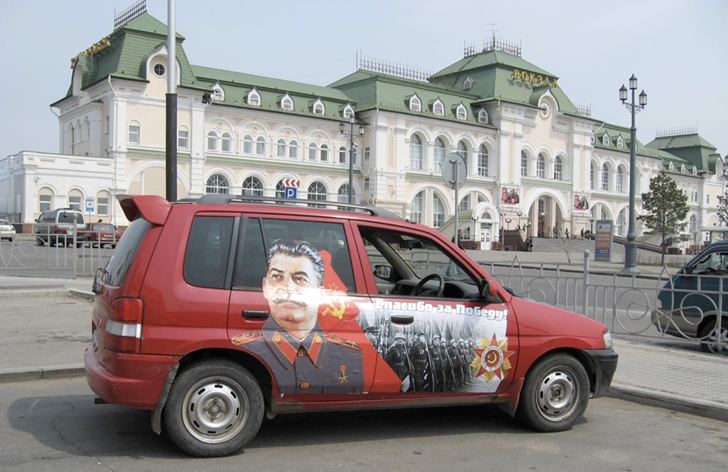
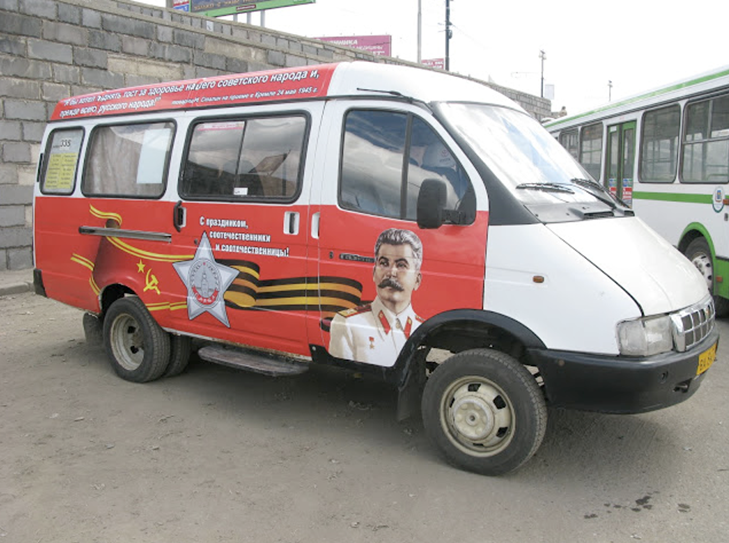
This year about 40 cities participated in the campaign, not only in Russia but also in some other former Soviet Republics. The Communist Party and several Stalinistic non-governmental organizations sponsored the campaign.
The slogan of the organizers of the event was “Let’s give back to Victory its name!”
Russians, including top officials and authorities are violently split over this question.
A representative of the Communist Party Vadim Solovyov stated that in his opinion the launch of Stalinobuses perfectly fits into the complex of Victory celebrations. He also said that his party would continue to collect signatures to permanently rename Volgograd into Stalingrad. “We have already collected more than 100,000 signatures,” – said Solovyov.
Opposite opinion is well formulated by Sergei Mitrokhin, the leader of a democratic party “Apple”. Mitrokhin stated that activists of his party will keep painting black over stalinobuses as they did in 2011. “Stalin is falsely attached his name to the victory. The War wouldn’t even happen if not for his idiotic politics and friendship with Hitler” – said the politician.
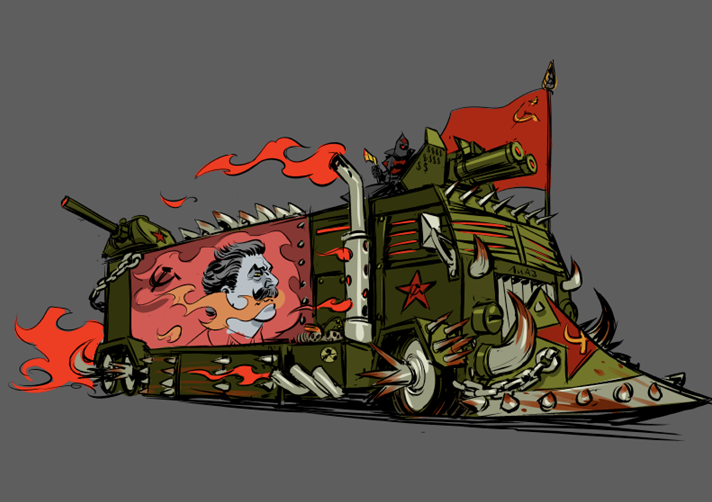
This caricature of “Stalinobus’ is presented in several Russian democratic web sites.
Twenty thousand people attended the February 2 military parade in Volgograde. Six hundred and fifty solders dressed in the World War II uniforms and vintage tank T-34 participated in the show.
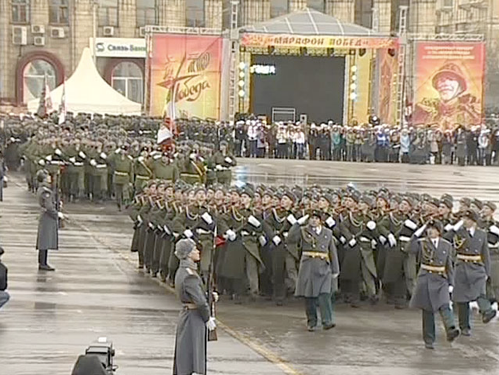
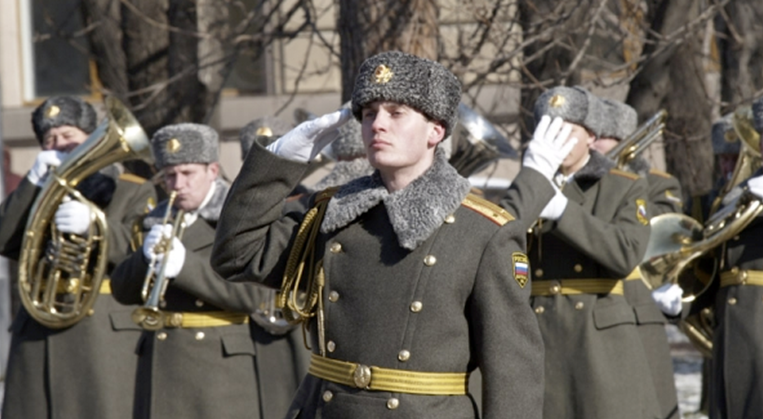
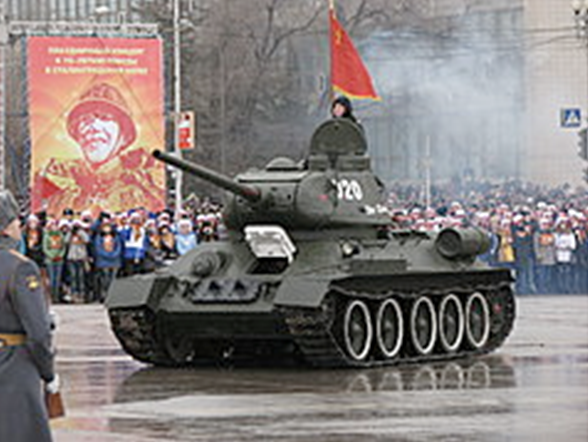
The parade was followed by 3D street projection show “Stalingrad” and Vladimir Putin’s speech at the city stadium. The celebration was completed with fireworks.

